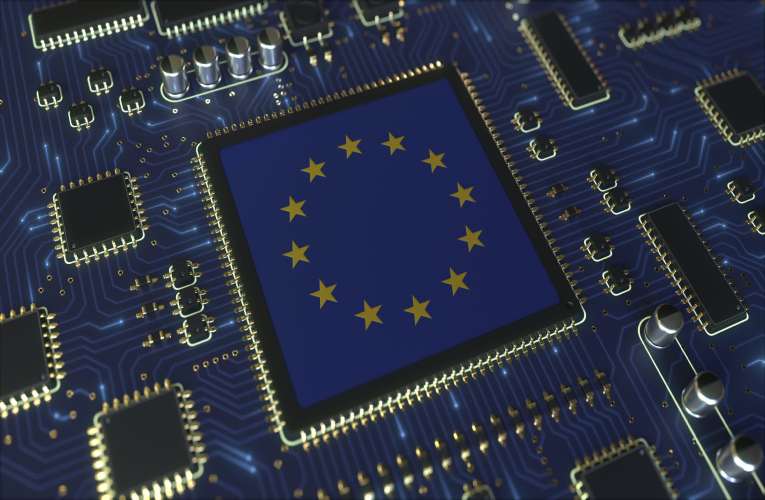
The EU signed an accord to double its share of international semiconductor production to 20 percent by the end of 2030 and augment foreign investment in this sector
Over the past few years, geopolitical scuffles are increasing in the Asian semiconductor industry mostly spearheaded by the US and hence, the European Commission president Ursula von der Leyen feels that the EU must now take several steps to perk-up production of advanced chipsets. She told this to the media during a briefing at the site of the much-awaited five-billion-euro ($5.5 billion) semiconductor production facility in Dresden.
Along with this project, Germany has also announced a slew of semiconductor manufacturing units in the country. Same as the US and India, the EU is taking this step to reduce its dependence on Asian countries on chip imports. A month back, it also signed an accord to double its share of international semiconductor production to 20 percent by the end of 2030 and augment foreign investment in this sector.
During the briefing, Leyen also added that in the past few years, the EU failed to give importance to its chip production units, while earlier the bloc was equipped with various global firms associated with the semiconductor industry. The EU must increase its manufacturing units in chipsets because the industry is now dominated by South Korea and Taiwan, which are now prone to geopolitical tensions and military invasions.
“Any trade disturbance would immediately harm the strong industrial base of Europe and our strong internal market. We have seen how geopolitical tensions have increased over the past few years," opined Leyen. In order to meet the same, the region must also solidify its supply chain ecosystem. While Taiwan is facing invasion threats from the communist party of China, South Korea on the other hand, is facing threats from North Korea on grounds of sanctions-defying rocket launches in 2023.
With the assistance of a newly launched draft regulation, the EU is also taking steps to develop its access to important raw materials that are utilized in making consumer electronics. At the same briefing, Olaf Scholz, the German Chancellor has compared semiconductors with petroleum of the 21st century. He said that chipsets now power everything from home electronic items to defense equipment and it is now an important raw material on which everything depends.
In the autumn of 2026, the new semiconductor plant in Dresden by Infineon is likely to begin its operation along with providing 1,000 employment. US firms such as Woldspeed and Intel and German company Bosch have already proclaimed their upcoming investments in Germany.

